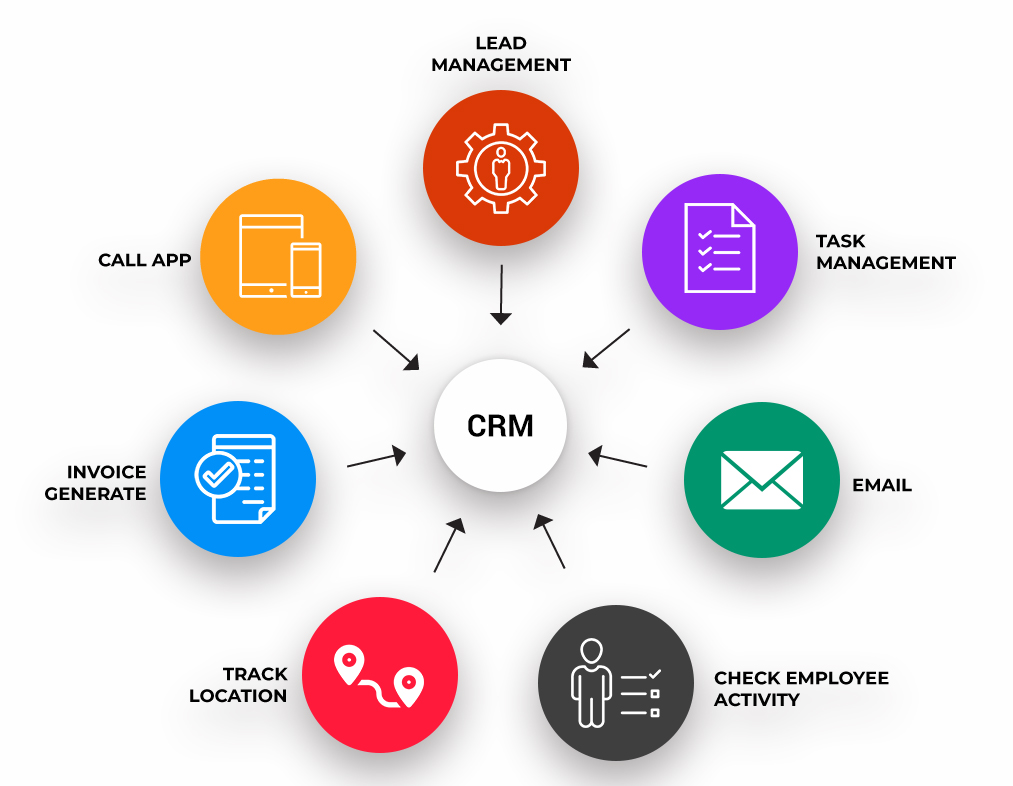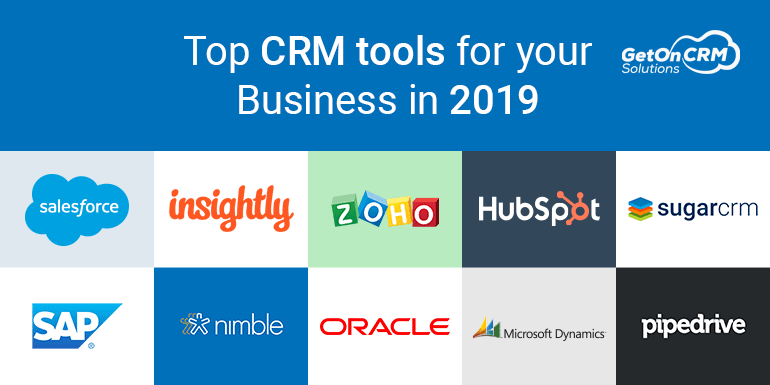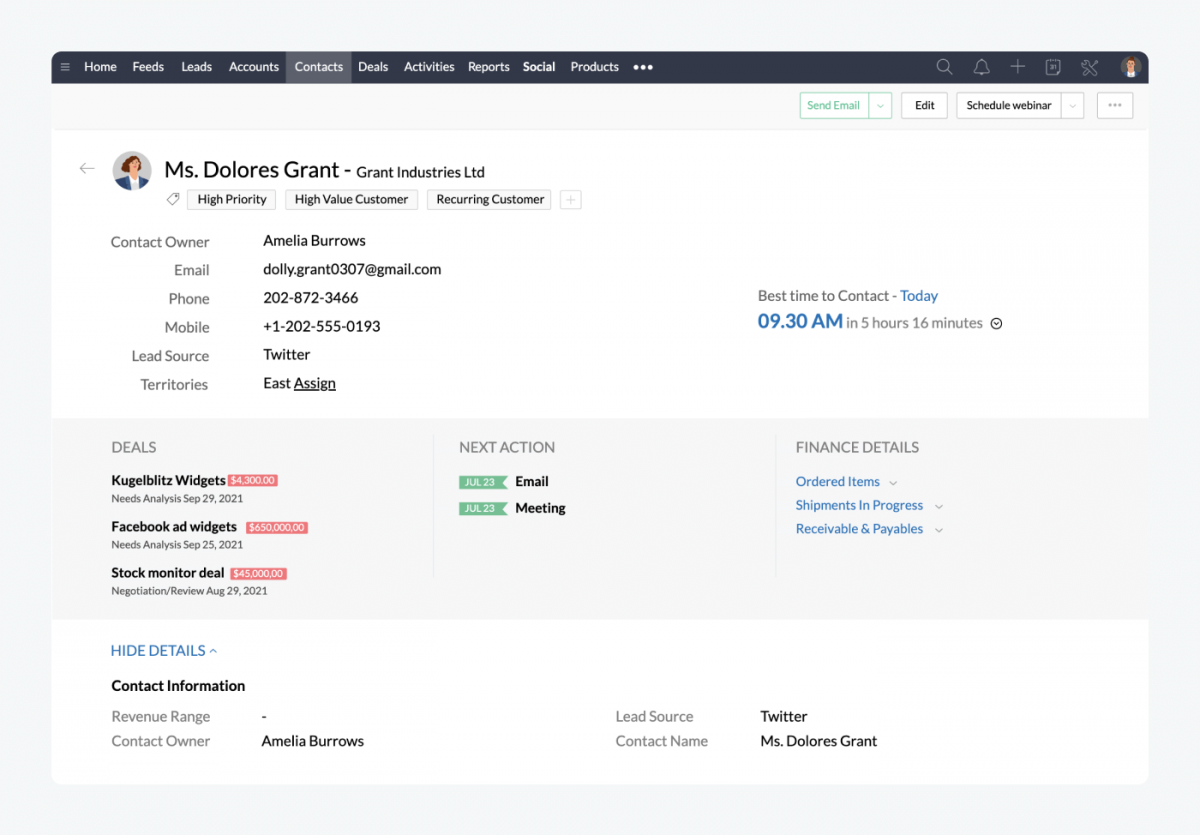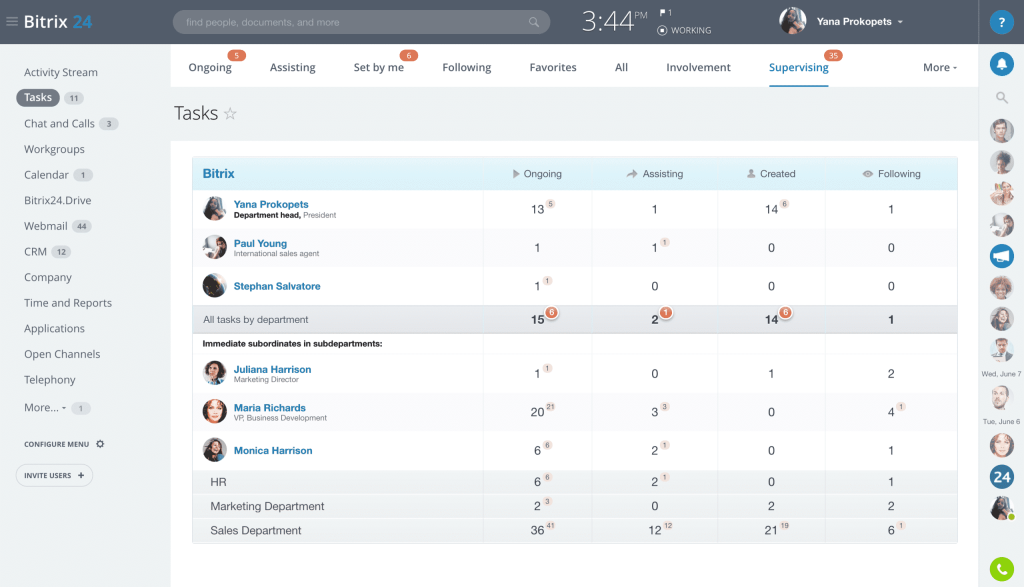Boosting Your Brand: A Deep Dive into CRM, Marketing, and Influencer Partnerships
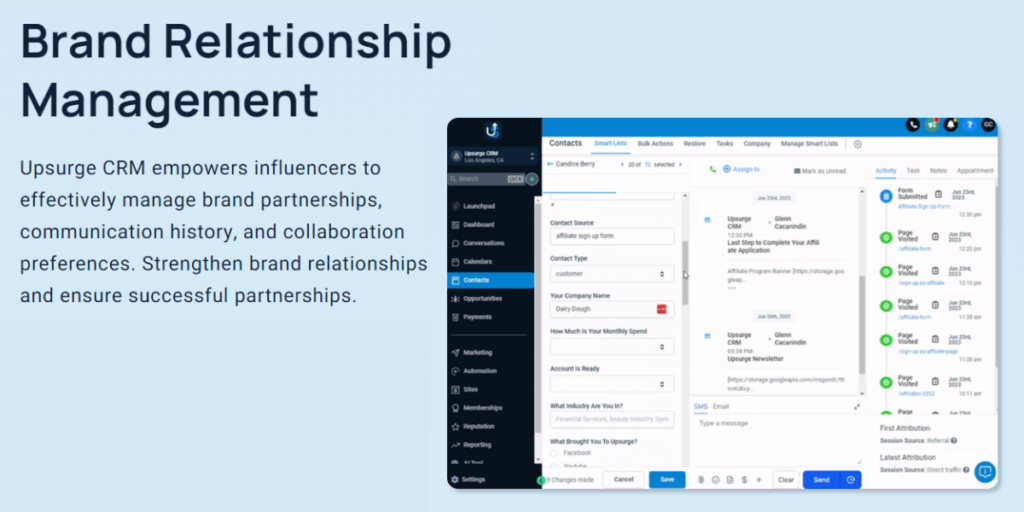
In today’s dynamic business landscape, staying ahead of the curve requires a multifaceted approach. It’s no longer sufficient to simply have a great product or service; you need to connect with your audience on a deeper level, understand their needs, and build lasting relationships. This is where the powerful synergy of Customer Relationship Management (CRM), strategic marketing initiatives, and influencer partnerships comes into play. This article will delve into the intricacies of this trio, exploring how they can be leveraged to catapult your brand to new heights.
Understanding the Core Components
Customer Relationship Management (CRM): The Foundation of Success
At its heart, CRM is more than just software; it’s a philosophy. It’s about putting your customer at the center of everything you do. A robust CRM system acts as the central nervous system of your business, collecting and organizing customer data, interactions, and preferences. This information is invaluable, providing insights that enable you to:
- Personalize your interactions: Know your customer’s history, preferences, and pain points to tailor your communication and offers.
- Improve customer service: Provide faster, more efficient, and personalized support.
- Streamline sales processes: Manage leads, track progress, and close deals more effectively.
- Enhance marketing campaigns: Target the right audience with the right message at the right time.
- Increase customer loyalty and retention: Build stronger relationships and keep customers coming back for more.
Choosing the right CRM system is crucial. Consider factors such as your business size, industry, and specific needs. Popular CRM platforms include Salesforce, HubSpot, Zoho CRM, and Microsoft Dynamics 365. The key is to select a system that integrates seamlessly with your existing tools and provides the features you need to achieve your business objectives.
Marketing: The Art of Reaching Your Audience
Marketing is the engine that drives awareness, generates leads, and ultimately, fuels sales. In the digital age, marketing has evolved significantly, encompassing a wide range of strategies and channels. A well-defined marketing strategy should include:
- Content Marketing: Creating valuable and engaging content (blog posts, articles, videos, infographics) to attract and retain your target audience.
- Search Engine Optimization (SEO): Optimizing your website and content to rank higher in search engine results.
- Social Media Marketing: Building a strong presence on relevant social media platforms to engage with your audience and promote your brand.
- Email Marketing: Nurturing leads and building relationships through targeted email campaigns.
- Paid Advertising: Utilizing platforms like Google Ads and social media advertising to reach a wider audience.
A successful marketing strategy is data-driven. You need to track your key performance indicators (KPIs), such as website traffic, lead generation, conversion rates, and return on investment (ROI), to measure the effectiveness of your campaigns and make necessary adjustments. This data-driven approach is greatly enhanced when integrated with a CRM system.
Influencer Partnerships: Amplifying Your Reach
Influencer marketing has become a powerful force in the marketing landscape. Influencers are individuals with a significant following on social media platforms who have the ability to influence their audience’s purchasing decisions. Partnering with the right influencers can provide several benefits:
- Increased brand awareness: Reach a wider audience through the influencer’s existing following.
- Enhanced credibility: Leverage the influencer’s trust and authority within their niche.
- Improved engagement: Drive higher engagement rates through authentic content and interactions.
- Increased conversions: Encourage purchases through influencer recommendations and promotions.
- Access to a targeted audience: Reach specific demographics and interests.
The key to successful influencer marketing is to find influencers who align with your brand values and target audience. Research their audience demographics, engagement rates, and content style to ensure a good fit. Develop a clear strategy, negotiate fair compensation, and track the results of your campaigns. Remember, authenticity is paramount; the best influencer partnerships feel natural and genuine.
The Power of Integration: CRM, Marketing, and Influencer Partnerships Working Together
The true magic happens when you integrate CRM, marketing, and influencer partnerships. This creates a virtuous cycle where each component amplifies the effectiveness of the others. Here’s how it works:
CRM Fuels Marketing
Your CRM system provides invaluable data about your customers, which you can use to segment your audience and personalize your marketing campaigns. For example, you can use CRM data to:
- Identify customer segments: Group customers based on their demographics, purchase history, and behavior.
- Personalize email marketing: Send targeted emails with relevant content and offers.
- Optimize website content: Tailor website content based on customer preferences and interests.
- Track marketing campaign performance: Measure the effectiveness of your campaigns based on customer data.
By leveraging CRM data, you can make your marketing efforts more relevant and effective, leading to higher conversion rates and ROI.
Marketing Supports CRM
Marketing campaigns generate leads and drive traffic to your website, which can then be captured and managed within your CRM system. This allows you to:
- Capture lead information: Collect contact details and other relevant information from potential customers.
- Track lead interactions: Monitor how leads interact with your website, emails, and other marketing materials.
- Nurture leads: Send targeted emails and other content to nurture leads and move them through the sales funnel.
- Qualify leads: Identify leads who are most likely to convert into customers.
By integrating marketing with your CRM, you can create a seamless lead management process that maximizes your chances of converting leads into paying customers.
Influencer Partnerships Enhance Both
Influencer partnerships can be a powerful tool for amplifying your marketing efforts and driving leads into your CRM system. When an influencer promotes your brand, their followers may visit your website, sign up for your email list, or even make a purchase. This data can then be tracked within your CRM system, allowing you to:
- Track influencer campaign performance: Measure the impact of influencer campaigns on website traffic, lead generation, and sales.
- Identify high-performing influencers: Determine which influencers are most effective at driving results.
- Personalize follow-up: Send targeted emails to leads generated by influencer campaigns.
- Optimize future campaigns: Use the data to refine your influencer marketing strategy and improve your ROI.
By integrating influencer partnerships with your CRM and marketing efforts, you can create a synergistic effect that drives significant growth.
Implementing a Successful Strategy: Practical Tips
Putting together a successful strategy involving CRM, marketing, and influencer partnerships requires careful planning and execution. Here are some practical tips to help you get started:
1. Define Your Goals and Objectives
What do you want to achieve with your CRM, marketing, and influencer partnerships? Set clear, measurable, achievable, relevant, and time-bound (SMART) goals. For example, you might aim to increase website traffic by 20% within six months, generate 100 new leads per month, or increase sales by 15% within a year. Having clear goals will help you to stay focused and measure your progress.
2. Choose the Right CRM System
Select a CRM system that meets your specific needs and integrates seamlessly with your other tools, such as your marketing automation platform and social media management tools. Consider your budget, the size of your company, and the complexity of your sales and marketing processes. Ensure that the CRM system is user-friendly and provides the features you need to manage your customer relationships effectively.
3. Develop a Comprehensive Marketing Strategy
Create a detailed marketing plan that outlines your target audience, your marketing channels, and your content strategy. Define your brand voice and messaging. Develop a content calendar to ensure you consistently produce high-quality content. Track your key performance indicators (KPIs) to measure the effectiveness of your campaigns and make necessary adjustments.
4. Find the Right Influencers
Research and identify influencers who align with your brand values and target audience. Look for influencers with a genuine following and high engagement rates. Analyze their content style and ensure it aligns with your brand. Negotiate fair compensation and develop a clear agreement that outlines the scope of the partnership. Establish a system for tracking the performance of your influencer campaigns.
5. Integrate Your Systems
Ensure that your CRM system, marketing automation platform, and social media management tools are integrated. This will allow you to share data seamlessly and track the effectiveness of your campaigns. For example, you should be able to track leads generated by influencer campaigns within your CRM system and personalize your follow-up emails.
6. Personalize Your Customer Experience
Use the data in your CRM system to personalize your interactions with customers. Tailor your website content, email marketing campaigns, and social media content to their specific interests and needs. Provide excellent customer service and build strong relationships with your customers. The more personalized your customer experience, the more likely they are to remain loyal to your brand.
7. Continuously Analyze and Optimize
Regularly analyze your data to assess the effectiveness of your CRM, marketing, and influencer partnerships. Identify areas for improvement and make necessary adjustments to your strategy. Test different approaches and track the results. Stay up-to-date on the latest trends and best practices in CRM, marketing, and influencer marketing.
Measuring Success: Key Metrics to Track
To gauge the effectiveness of your integrated strategy, it’s crucial to track specific metrics. Here are some key performance indicators (KPIs) to monitor:
- Website Traffic: Monitor the number of visitors to your website, as well as traffic sources.
- Lead Generation: Track the number of leads generated through your marketing campaigns and influencer partnerships.
- Conversion Rates: Measure the percentage of leads who convert into customers.
- Customer Acquisition Cost (CAC): Calculate the cost of acquiring a new customer.
- Customer Lifetime Value (CLTV): Estimate the total revenue generated by a customer over their relationship with your brand.
- Return on Investment (ROI): Calculate the return on your marketing and influencer marketing investments.
- Engagement Rates: Monitor engagement on social media platforms, including likes, shares, and comments.
- Customer Satisfaction: Measure customer satisfaction through surveys and feedback.
- Brand Awareness: Track brand mentions and sentiment online.
By closely monitoring these metrics, you can gain valuable insights into what’s working and what needs improvement. This data-driven approach allows for continuous optimization and ensures you’re maximizing your ROI.
Common Pitfalls to Avoid
While the integration of CRM, marketing, and influencer partnerships can be incredibly powerful, there are some common pitfalls to watch out for:
- Lack of Integration: Failing to integrate your CRM, marketing automation platform, and social media management tools can lead to data silos and missed opportunities.
- Poor Data Quality: Inaccurate or incomplete customer data can undermine your efforts to personalize your interactions and target your marketing campaigns effectively.
- Choosing the Wrong Influencers: Partnering with influencers who don’t align with your brand values or target audience can damage your brand reputation and fail to drive results.
- Ignoring Customer Feedback: Failing to listen to customer feedback and address their concerns can lead to dissatisfaction and churn.
- Not Measuring Results: Failing to track your key performance indicators (KPIs) can make it difficult to assess the effectiveness of your campaigns and make necessary adjustments.
- Over-reliance on Automation: While automation can be helpful, over-relying on it can lead to impersonal interactions and a lack of authenticity.
By being aware of these potential pitfalls, you can take steps to mitigate them and increase your chances of success.
The Future of CRM, Marketing, and Influencer Partnerships
The landscape of CRM, marketing, and influencer partnerships is constantly evolving. Here are some trends to watch out for:
- Artificial Intelligence (AI): AI is being used to automate tasks, personalize customer experiences, and improve marketing campaign performance.
- Data Privacy: As data privacy regulations become more stringent, businesses need to prioritize data security and transparency.
- Video Marketing: Video continues to be a dominant form of content, with businesses using video to engage their audience and promote their brands.
- Micro-Influencers: Micro-influencers (those with a smaller, more engaged following) are becoming increasingly popular, as they often have higher engagement rates and are perceived as more authentic.
- Personalization: Customers expect personalized experiences, so businesses need to leverage data to tailor their interactions and offers.
- Customer Journey Mapping: Businesses are using customer journey mapping to understand the customer experience and identify areas for improvement.
By staying ahead of these trends, you can ensure that your CRM, marketing, and influencer partnerships remain effective and relevant.
Conclusion: Embracing the Power of Synergy
In conclusion, the integration of CRM, marketing, and influencer partnerships offers a powerful strategy for driving business growth. By putting the customer at the center of everything you do, leveraging data to personalize your interactions, and partnering with the right influencers, you can build stronger relationships, increase brand awareness, and drive conversions. Remember to define your goals, choose the right tools, integrate your systems, and continuously analyze and optimize your strategy. By embracing the power of synergy, you can position your brand for long-term success in today’s competitive market.
This integrated approach, when executed with precision and a customer-centric mindset, not only boosts immediate sales but also fosters lasting brand loyalty, ultimately creating a sustainable and thriving business model. The combination of CRM, marketing, and influencer partnerships isn’t just a trend; it’s a fundamental shift in how businesses connect with their audience and achieve their goals.

